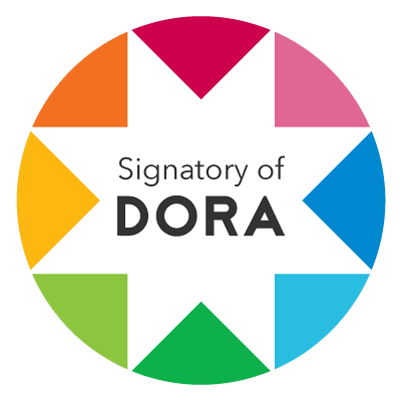Editorial policies
Code of ETHICS
ANTI-PLAGIARISM Policy
DATA AVAILABILITY Policy
--- --- ---
Code of ETHICS
REDIC has an anti-plagiarism policy aimed at ensuring that all published works are original and have not been previously published.
To pursue such policy, the Journal uses iThenticate, a software that identifies coincidences to check and prevent plagiarism. This resource provided by the National University of La Plata was incorporated into the Journal in 2023 and, since then, it is applied to all submissions.
Editorial Board
-The Editorial Board commits to protecting the intellectual property of both the journal and the author’s rights.
-The Editorial Board commits to guaranteeing an unbiased, fair and thorough revision of works from the peer-review process on.
-The Editorial Board commits to responding promptly to complaints and misunderstandings in terms of ethics or conflicts of interests and to following the necessary procedures to solve such issues in accordance with the regulations set by the National University of La Plata.
Directors
-Directors commit to permanently improving the journal, to assuring the quality of the material, to championing freedom of expression, to ensuring that commercial interests do not affect ethics, and to publishing corrections, clarifications, retractions and apologies.
-Directors commit to seeking the views of authors, readers, reviewers and editorial board members regarding ways of improving their journal’s processes.
-Directors commit to accepting or reject a paper for publication based on the paper’s relevance, originality and clarity and the journal’s subject matter.
-Directors commit to publishing rules and guidelines for authors and reviewers on everything that is expected of them. This guidance will be regularly updated.
-Directors commit to ensuring that peer reviewers and authors’ identities are protected.
-Directors commit to providing guidance to the editorial board on what is expected of them.
Editors
-Editors commit to carrying out their editorial duties in a fair, unbiased and balanced manner.
-Editors commit to taking all necessary measures to prevent fraudulent publications.
-Editors commit to ensuring reviewers’ and authors’ anonymity during peer-review in order to maintain intellectual integrity throughout the process.
-Editors commit to ensuring the revision and publication deadlines are met.
Reviewers
-Reviewers commit to conducting honest, critical and unbiased reviews.
-Works should be evaluated in the least possible time to meet deadlines.
-Reviewers commit to submitting a report providing detailed comments on the sections of the article that the journal’s editorial board requested be reviewed. -Under no circumstance will reviewers copy or keep the work under review.
Authors
-Authors undertake not to submit the paper to another journal and to guarantee that the paper is original and unpublished.
-Authors will bear full responsibility for the opinions, statements and conclusions included in their works.
-Authors commit to using images whose rights have been transferred or whose authors have granted permission for their publication. Authors should mention the author of the image (whether it is a person, a group, an institution or the media).
-Should archive files be used (letters, images, etcetera), the authors commit to mentioning the source of the piece or work and the place where said item is exhibited or archived.
-Authors undertake to make all changes and corrections requested by the reviewers.
--- --- ---
ANTI-PLAGIARISM Policy
REDIC has an anti-plagiarism policy aimed at ensuring that all published works are original and have not been previously published.
To such end, and due to the limitations that the automated plagiarism detection systems have in Spanish, the journal adopts the following procedure:
- When submitting the article, authors are requested to declare the article has neither been previously published nor submitted to other journals for review and that the Guidelines for Authors, which state that articles should be original, have been followed.
-When receiving the article, the editor uses Internet search tools to track and compare data, results and wording in other works by the same or different authors so as to check for the originality of the article and to prevent plagiarism.
-When articles are submitted for review, reviewers are requested to inform the journal of any indicator of plagiarism of other works previously published in other sources, based on their own knowledge of the sources and the literature on the subject.
Should plagiarism be confirmed, REDIC follows COPE guidelines.
Plagiarism includes the following practices:
Direct Plagiarism
-Minimal changes are introduced to another writer’s work and the text is presented as one’s own.
-Authorship of fragments (sentences or paragraphs) of other texts is omitted (both when reproduced verbatim without quotation marks and through paraphrasis).
Plagiarism in Direct Quotations
-Failure to use quotation marks to signal fragments (sentences or paragraphs) reproduced verbatim.
-Only part of the fragment (sentences or paragraphs) reproduced verbatim is signaled by quotation marks (the fact that the sentences before and/or after the quoted passage also correspond to the cited text is omitted).
Plagiarism in Paraphrasing
-The changes introduced do not modify the wording of the original passage (sentences or paragraphs) substantially and are, therefore, not an instance of paraphrasing.
-Paraphrasing is lengthy and there is no clear distinction between paraphrased and the original passages.
-There is constant paraphrasing and a failure to include materials, own ideas or critical reflections that allow for interaction or broaden the information available in other already published works.
The following cases are not considered plagiarism:
-The passages that are reproduced do not prevail over the original contributions of the author.
-The inclusion of passages from other works is used to allow the author to interact critically with another person's point of view.
- The argument of the original text retains its meaning but is restated with different words or characteristics.
Self-Plagiarism or Recycling Fraud
-Minimal changes are introduced to one of the author’s own texts which is then submitted as a different work.
-The fact that it is a previously published work that has been recycled with corrections or additions is omitted.
The following cases are not considered self-plagiarism:
-A new contribution is based on previous work and key sections need to be repeated to explain and support new arguments.
-The author believes that the developments of previous works cannot be presented in a better way for the new work.
-The repeated passages constitute less than 30% of the original work.
--- --- ---
DATA AVAILABILITY Policy
REDIC promotes the transparency and reproducibility of published research so that other researchers can replicate the studies described in their articles, either to corroborate or refute the results obtained, in accordance with the provisions of National Act 26.899 on Open Access Institutional Digital Repositories.
To promote the reproducibility of results, the journal requires that authors provide unrestricted access to the data sets with which they have carried out the research described in their article. Should there be ethical or legal limitations, authors should specify how other researchers may access said data.
All research data and information sent to REDIC may be uploaded to and made available in SEDICI, the repository of the National University of La Plata in order to increase compliance with FAIR principles: Findable, Accessible, Interoperable and Reusable.
Authors are encouraged to deposit data in other Argentinian research data repositories prior to submitting their article to the Journal. Thus, when submitting the article, authors should only specify the URL where the research data can be found.
Authors are requested to use formats that maximize accessibility and reusability of data (for instance, if tabular data is included, spreadsheets should be used). If necessary, it is advisable to publish, along with the data, the algorithms or pipelines that should be applied to the data for their correct interpretation.
This research data policy was adopted by REDIC on December 15, 2020 and applies to all received works as of that date. Previously published articles are not subject to this policy.




















